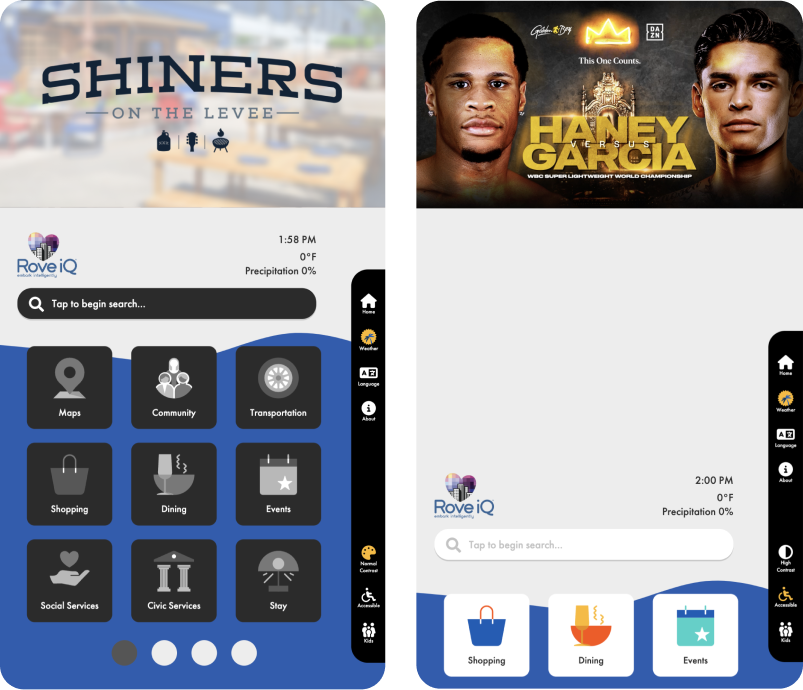How RoveIQ Brings More Accessibility to Smart City Kiosk Solutions
In an era where technology is ingrained in daily life, the necessity for inclusive design is paramount. At RoveiQ, we are dedicated to crafting software solutions that are not just innovative but also universally accessible. With our latest software deployment interface for smart city kiosks, we have committed to ensuring that every individual, regardless of their abilities, can engage with our technology.
Bridging Barriers with Advanced Accessibility Features
At the heart of RoveiQ’s interface design is a profound understanding of the diverse needs of our users. Our goal is to create a digital environment that is welcoming and accessible to all, mirroring the inclusive vision of the cities that our software calls home. To achieve this, we have integrated several advanced features into our user interface.
AI-Powered Multilingual Support for Touch Screen Kiosks
Language should not be a barrier to accessing technology. To cater to our diverse user base, RoveiQ’s platform includes AI-powered multi-language support that covers English, Spanish, and Mandarin Chinese, with support for additional languages on the horizon. This feature leverages advanced artificial intelligence to deliver real-time, accurate translations, enabling users from different linguistic backgrounds to interact with our software in their preferred language. According to the U.S. Census Bureau, over 67 million U.S. residents speak a language other than English at home, highlighting the importance of multilingual support in modern software solutions.
ADA Mode on Smart Kiosks
Compliance with the Americans with Disabilities Act (ADA) is not just a regulatory requirement but a moral imperative. Our ADA mode ensures that our software adheres to the highest standards of accessibility, providing an equitable user experience for individuals with disabilities. This feature dynamically adjusts the user interface to enhance ergonomics and readability, ensuring that everyone can use our software with ease. Approximately 26% of adults in the United States live with some type of disability, underscoring the critical need for accessible digital environments.
High-Contrast Mode for Visual Improvements on Digital Kiosks
Visual impairment can significantly affect how one interacts with digital interfaces. Our high-contrast mode is designed to assist users with visual impairments, enhancing the interface with sharp contrasts and distinct colors. This mode makes it easier for users to distinguish elements on the screen, providing a clearer and more accessible visual experience. With over 2.2 billion people globally affected by near or distance vision impairment, features like high-contrast mode are essential for ensuring digital inclusivity.
The RoveiQ Commitment to Inclusivity
As we continue to expand and evolve, our commitment to inclusivity remains unwavering. We are constantly exploring new ways to enhance accessibility and are committed to incorporating feedback from our community to make our solutions even better. By focusing on accessibility, RoveiQ isn’t just complying with standards—we are setting them.
RoveiQ’s enhanced accessibility features are a testament to our dedication to inclusivity. By understanding and addressing the varied needs of our users, we ensure that our technology is not only cutting-edge but also accessible to everyone. We invite you to experience the simplicity, elegance, and functionality of RoveiQ’s software, where every feature is designed with you in mind. Together, let's build accessible cities that are smart, inclusive, and designed for all.
If you’re interested in adding smart city kiosks and software to your city, reach out to RoveIQ here.



